Results
-
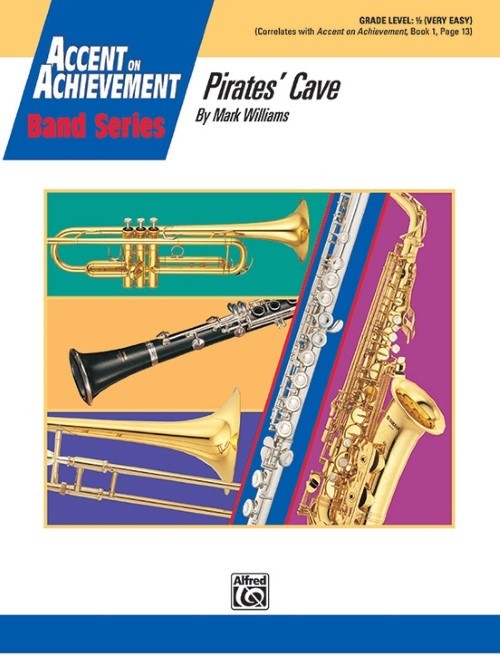 £48.95
£48.95Pirates' Cave (Concert Band - Score and Parts) - Williams, Mark
Tales of swashbuckling pirates and this musical depiction of the pirates' secret hideout are sure to be a hit with your students. Using only the first 7 notes taught, with no rhythms faster than a quarter-note (eighth-notes in the snare drum), this is perfect for that first-year concert.Duration: 2.00
Estimated dispatch 7-14 working days
-
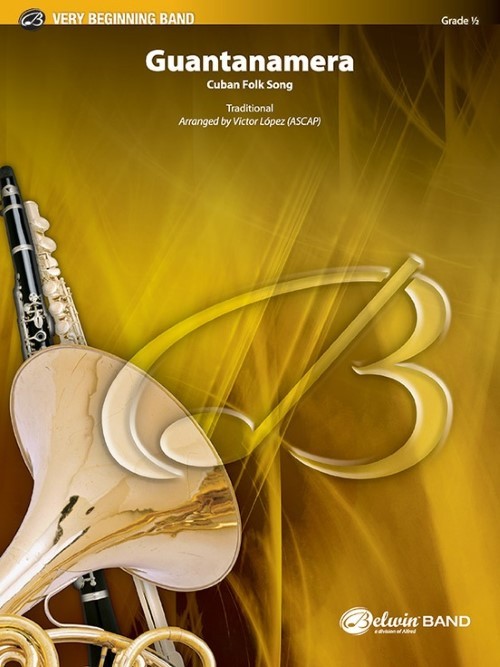 £45.95
£45.95Guantanamera (Concert Band - Score and Parts) - Lopez, Victor
There's no one better to present Guantanamera to your beginners. Victor L?pez sets the steady Latin-rock groove in your percussion section as the foundation for this appealing Cuban melody. Translated, the title means "the girl from Guantanamo". With the enhanced program notes, it's a great choice for cross-curricular instruction with a spicy flair. Duration: 2.00
Estimated dispatch 7-14 working days
-
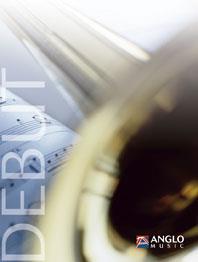 £69.99
£69.99Mexican Holiday (Concert Band - Score and Parts) - Sparke, Philip
Whilst making no claims to be stylistically authentic, this little piece aims to capture the infectious spirit of mariachi, a word whose origins are lost in the mists of time, but which describes not only the performers (on guitars, vihuelas, violins, trumpets and harp) but also the music itself. Their music speaks of love, passion, politics, life in the country and revolutionary heroes but is unerringly uplifting in style and immediately recognisable as the spirit of Mexico. A chance to add that Spanish flavour to your concerts.Duration: 1:30
Estimated dispatch 7-14 working days
-
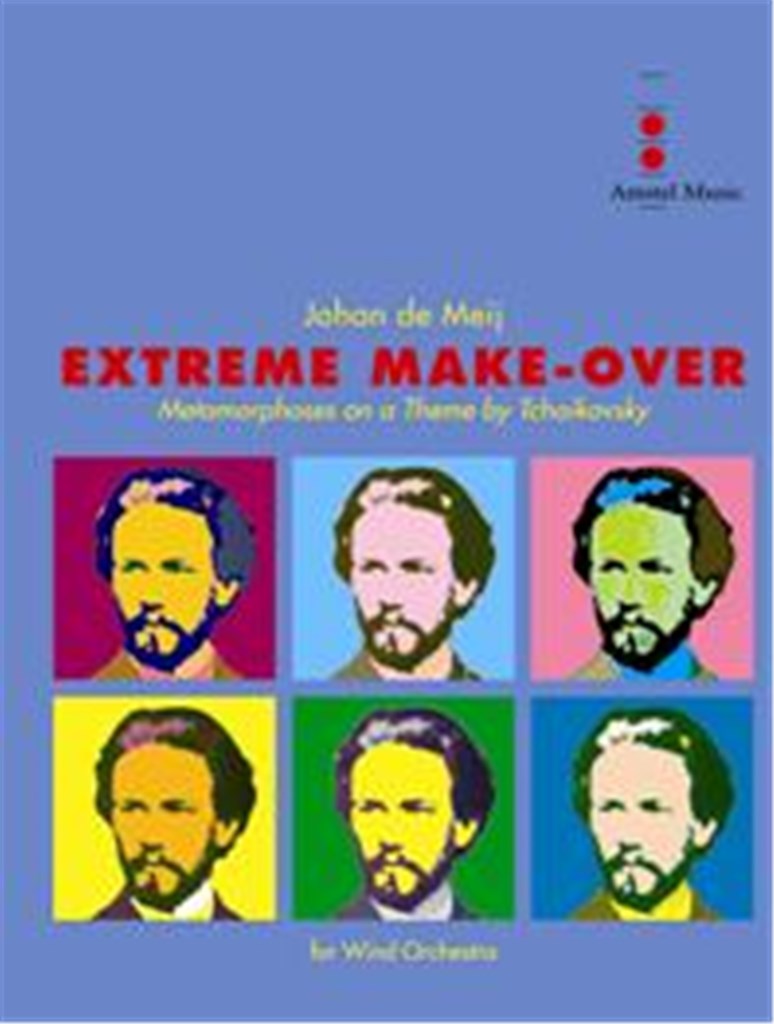 £229.00
£229.00Extreme Makeover (Concert Band - Score and Parts) - De Meij, Johan
Extreme Make-Over was inspired by a theme from the second movement of Tchaikovsky's String Quartet No.1 (Andante Cantabile). It consists of a number of musical metamorphoses on the theme and includes several excerpts from Tchaikovsky's Fourth and Sixth Symphonies and Romeo and Juliet. The most unconventional element of the work is instrumentation for ten tuned bottles to be played by members of the cornet section. This gives the piece an Indonesian Gamelan effect. Why not give your players something to get their teeth into with this impressive major work. Duration: 16.30
Estimated dispatch 7-14 working days
-
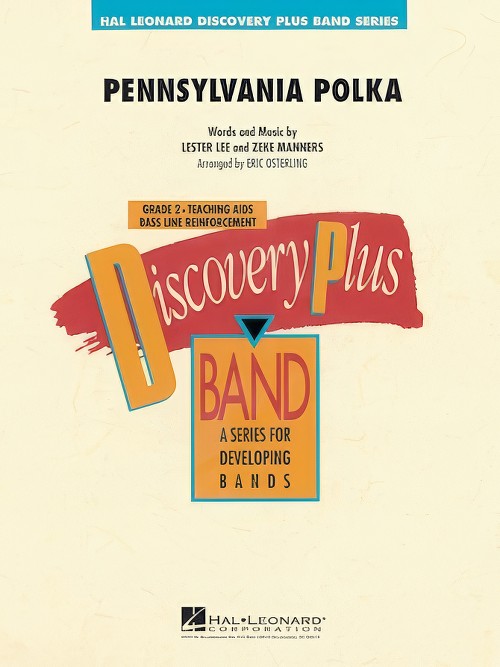 £53.50
£53.50Pennsylvania Polka (Concert Band - Score and Parts) - Lee & Manners - Osterling, Eric
There's no better way to please a crowd than by playing a rousing polka! This excellent arrangement will sound great with younger players and is easy to learn. Clear the aisles and swing your partner!
Estimated dispatch 7-14 working days
-
 £45.95
£45.95Back to School Blues (Concert Band - Score and Parts) - Strommen, Carl
Your students may feel the blues when they're coming back to school. But don't worry--there are no swing rhythms, just a few blue notes in this work. It's a tremendous opportunity to teach others about the blues style. Back to School Blues - Summer's over! Duration: 1.45
Estimated dispatch 7-14 working days
-
 £94.95
£94.95Alloway Tales (Concert Band - Score and Parts) - Graham, Peter
Scotland's greatest storyteller, Robert Burns, was born in Alloway, near Ayr in 1759, and died in 1796. This arrangement of three of his best songs includes an optional part for speaker (Scots accent preferred!) The first song is a portrait of Duncan Gray, who rides into the village to woo Maggie. After some initial misgivings on Maggie's part, wedding bells are in the air, and both live happily ever after. The second portrait is of Mary Campbell, who lies asleep by the gently flowing Afton Water. This is one of the most beautiful of Burns' settings, and in this arrangement the flugel horn is featured. The final song, The Devil's awa wi th' Exciseman, sees the scourge of the village, the customs man, spirited away by the Devil in a flurry of dust and hooves. They leave behind some very happy villagers who waste no time in celebrating their good fortune with jigs, drums and fun galore.
Estimated dispatch 7-14 working days
-
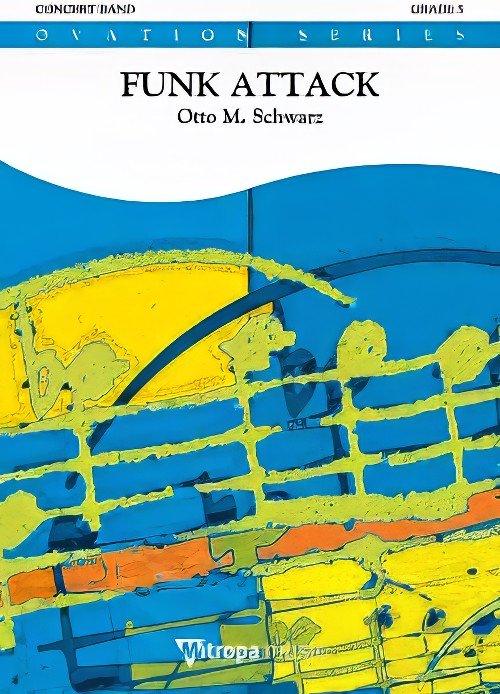 £84.99
£84.99Funk Attack (Concert Band - Score and Parts) - Schwarz, Otto M.
Otto M. Schwarz is endeavoring to contribute new ideas to concert band literature. He has contributed in the field of multimedia (Asteroid), and with his many compositions in symphonic/modern arrangement (Jazz Waltz No 1, Fire and Ice or Band Fever). His new composition Funk Attack is, as the name suggests, a piece in funk style. Otto M. Schwarz first gained his experience in his style in the 8o?s, transcribing numbers by famos Amerarican bands including "Earth, Wind and Fire", "Tower of Power"", and the British slap idol "Mark King" (Level 42). Funk attack is atypical of "the concert band scene" and requires absolute precision in phrasing and rhythm. Without the support of a great percussion groove, the orchestra plays an interlocked theme in the central section in style of recent American Big Bands. Otto M. Schwarz dedicated this work to "Alexander Veit and Symphonic Winds".Duration: 4:45
Estimated dispatch 7-14 working days
-
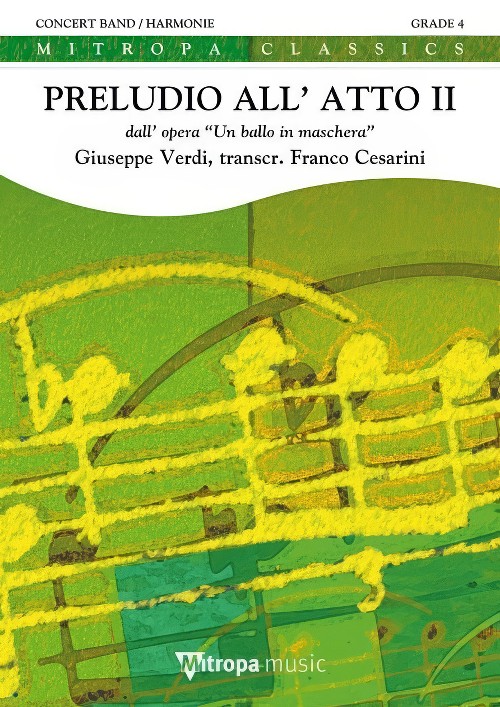 £89.99
£89.99Preludio All' Atto II (Concert Band - Score and Parts) - Verdi, Giuseppe - Cesarini, Franco
For the first draft of the libretto of Un ballo in maschera (1859), Giuseppe Verdi drew his inspiration from the grand-opra Gustave III by Auber, an opera performed for the first time in Paris in 1833 that depicted the assassination of the King of Sweden. However, censorship, first in Naples and then in Rome, intervened and imposed heavy modifications. Perhaps because it was too demanding, Verdi showed no intransigence with the requests coming from Naples and refused to alter the libretto. On the other hand, he yielded to the requests of the Roman authorities and agreed to change the site of the action and the identity of the protagonists. Consequently, the scene moved from Stockholm to Boston and King Gustav became the Count of Warwick, Governor of Massachusetts.The prelude to the second act is very short and introduces the scene at the place where the scaffold stands. In only a few measures, Verdi skilfully succeeds in condensing the interior restlessness of the protagonists, alongside a prayer of hope.Duration: 2:15
Estimated dispatch 7-14 working days
-
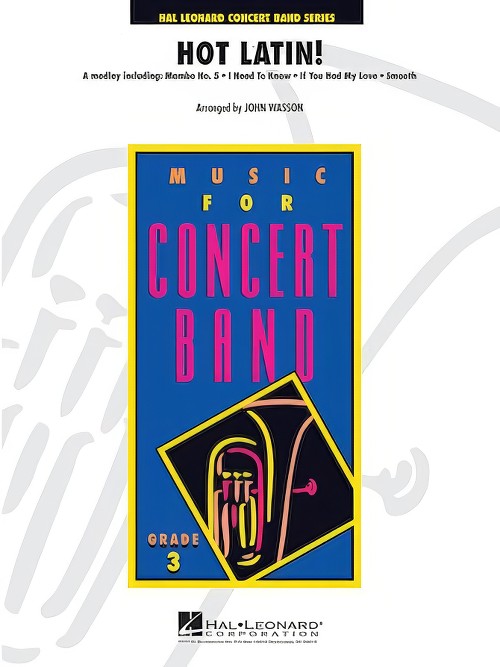 £64.99
£64.99Hot Latin! (Concert Band - Score and Parts) - Wasson, John
Contemporary Latin has hit the pop charts in a big way. Here's a great medley of some of today's hottest tunes. Includes: I Need To Know (Marc Anthony); If You Had My Love (Jennifer Lopez); Mambo No.5 (Lou Bega); Smooth (Santana).
Estimated dispatch 7-14 working days
